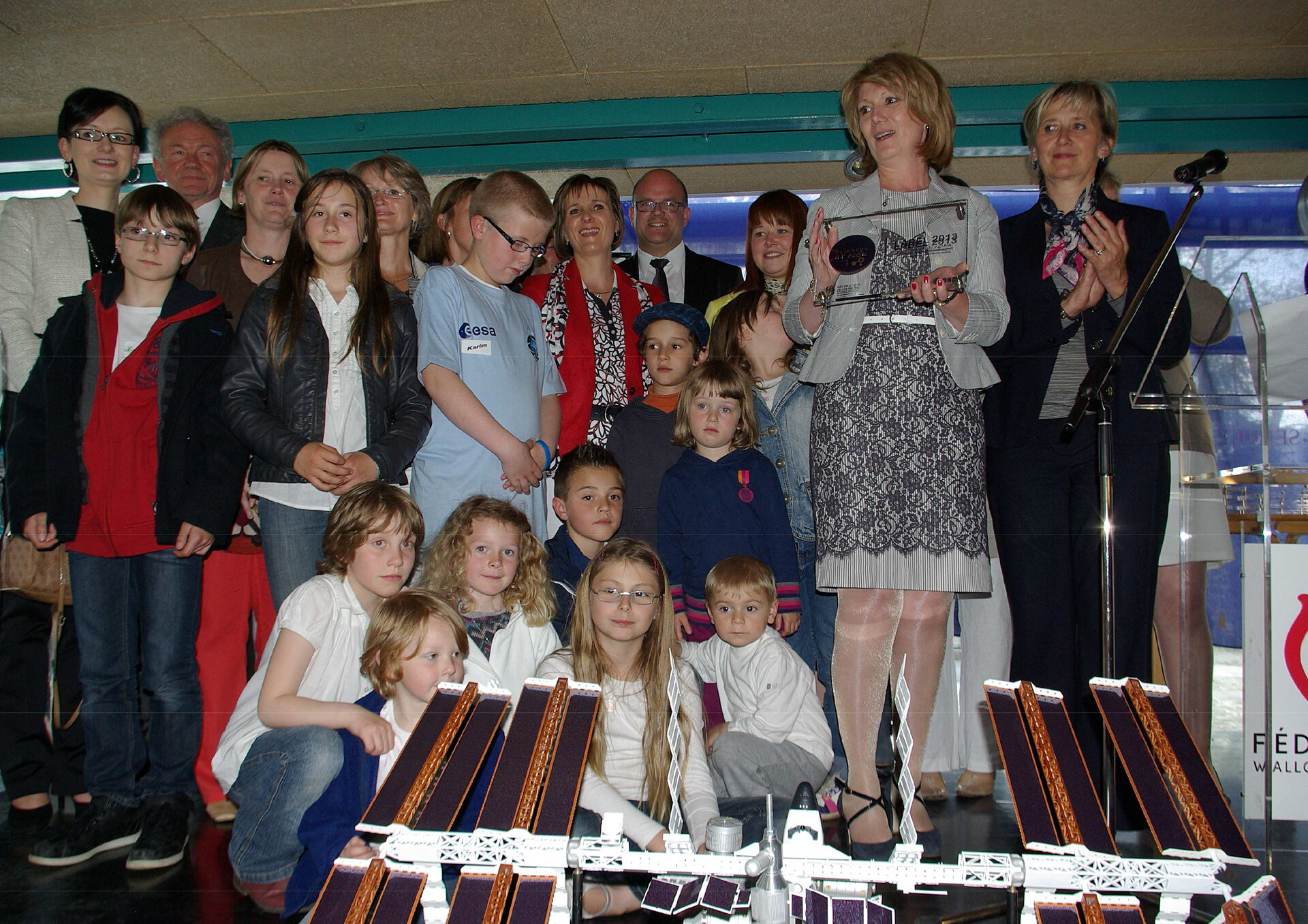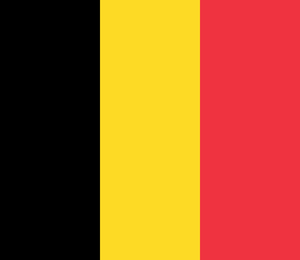Prestigious “Sciences at School” label introduced in Belgium
A new chapter in the successful “Space and Education” project, which supports science education in Belgium, was marked yesterday by a special event held at Han-sur-Lesse school, in the Ardennes region of Belgium.
On 15 May, 17 Belgian schools were officially given the designation “Sciences à l’école” (Sciences at School), marking a significant milestone in the ambitious project to improve science education and enthuse students for science.
About 400 students, teachers, inspectors and high-level representatives attended the event, which included an exhibition of dozens of school projects completed by pupils. The presentation ceremony was organised by the Wallonia-Brussels Federation, the European Space Education Resource Office (ESERO) in Belgium, and ESA.
Marie-Dominique Simonet, the French-speaking Minister for Compulsory Education and Improvement Classes, and the Federal Secretary of State for Scientific Policy, Philippe Courard, attended the event and awarded the prestigious title of Science School to each of the schools.
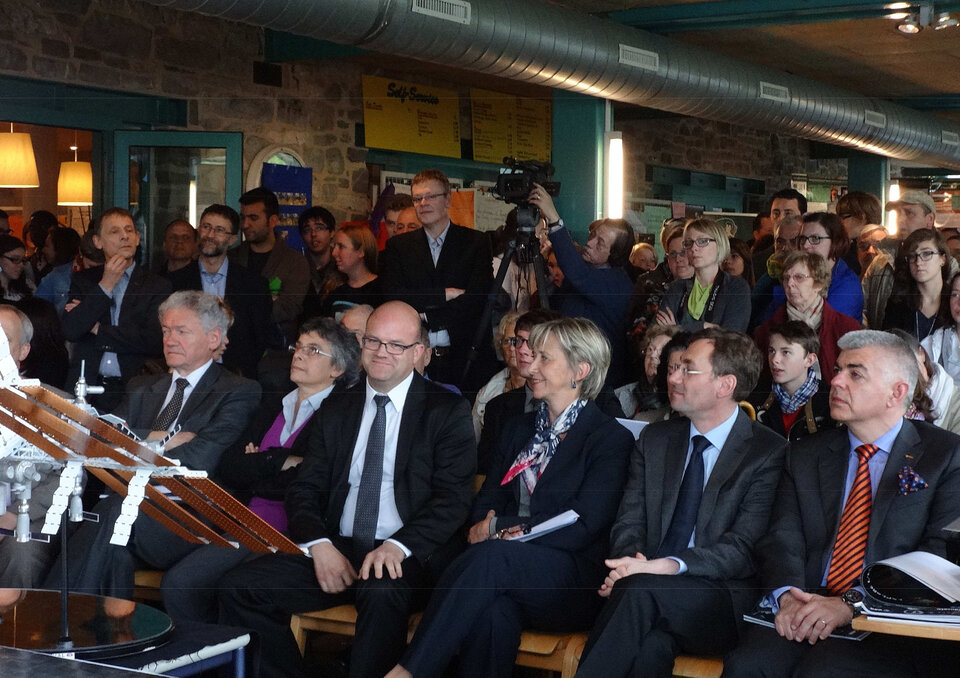
“The considerable collaboration between everyone involved - the teachers, the students, the institutions and the inspectors - has greatly increased the educational value of the Space and Education project,” said Marie-Dominique Simonet.
“I can only congratulate all participating schools, students and teachers,”said Philippe Courard. “The various scientific projects initiated within their institutions are important tools that introduce science and technology to our children.
“I am delighted to be able to support projects like this, which promote interest in science from an early age - especially since one million jobs in scientific research are likely to be created in Europe by 2020."
On behalf of ESA, the Belgian astronaut Frank De Winne, who was unable to be present at the event, sent a recorded video message of congratulation to all the schools. De Winne, the current Director of the European Astronaut Centre, has been a strong supporter of the project since it began.
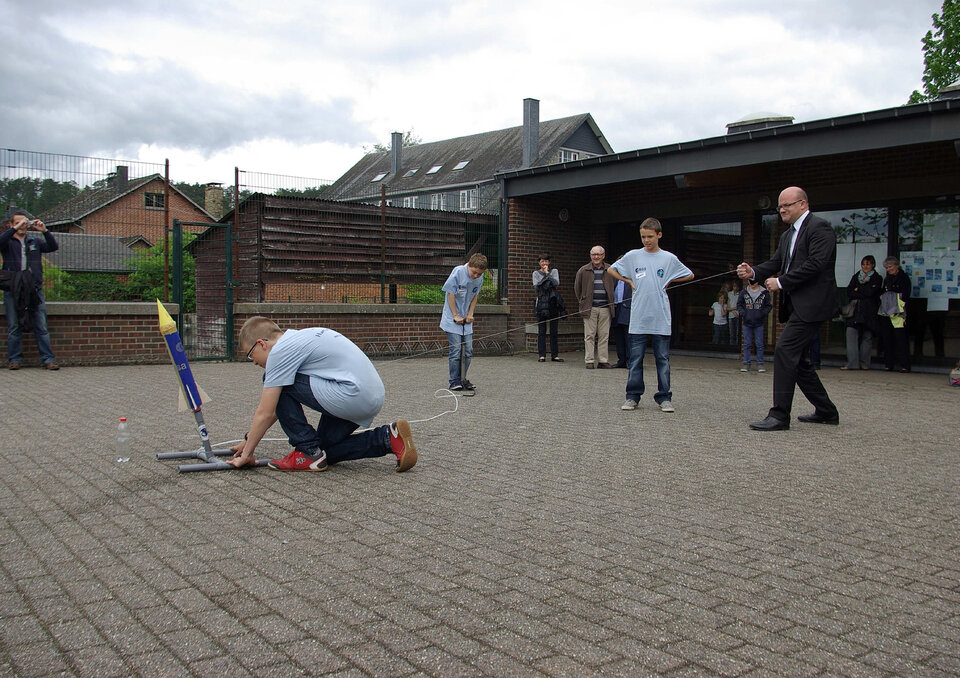
The “Sciences at School” label - a recent initiative of the “Espace et Enseignement” (Space and Education) project - recognises schools which make a special effort to stimulate interest in science and technology subjects.
Hugo Marée, Head of ESA’s Education and Knowledge Management Office commented about the importance of the project and the joint effort.
“We are delighted that this project has been so successful since it was introduced,” he said. “Thanks to the close coordination between our office and the ESERO located at the Planetarium of the Belgian Royal Observatory in Brussels, teachers have been able to give children opportunities to develop scientific activities focused on research methodologies. As a result, they have discovered that technology and sciences are exciting, attractive, accessible and fun.”
The event also included a visit to one of the schools involved in the project, the elementary school at Han-sur-Lesse, where dozens of primary students together with their teachers presented their projects about space and science. They also launched a water rocket with the active involvement of Philippe Courard.
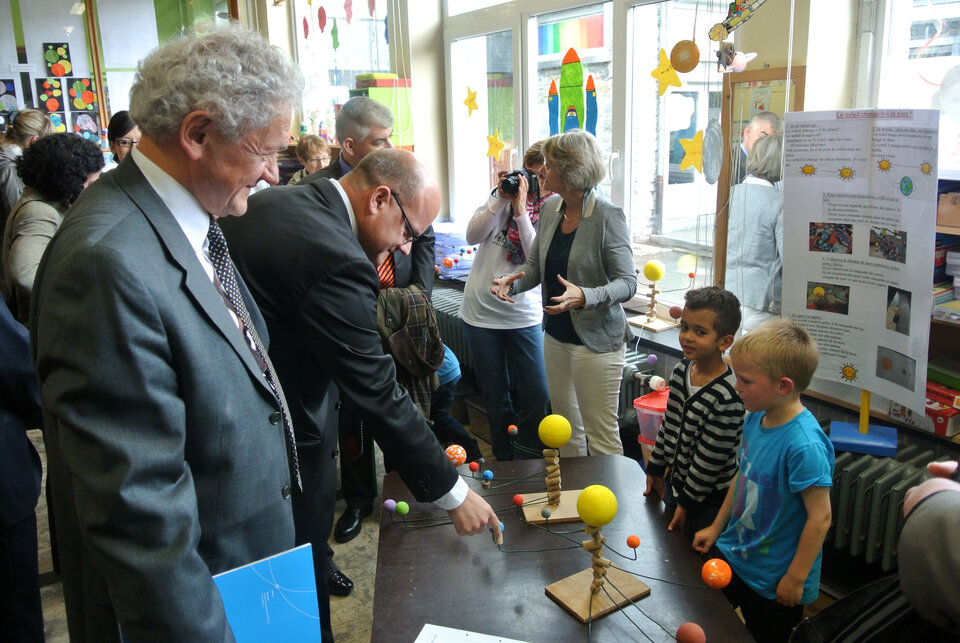
“Espace et Enseignement” (Space and Education)
The “Space and Education” project was started by the Prince Philippe Fund, a Belgian foundation which seeks to maintain and encourage dialogue between the different communities of Belgium (Brussels, Flanders and Wallonia). Since it began in 2007, this project has grown to include about 100 Space Education schools. The project is implemented jointly by the Ministry of Education of the French-speaking community (DGEO), the school inspection services of the Wallonia-Brussels Federation, and ESA, through ESERO Belgium.
The project enables teachers and students to develop and implement space-related scientific activities. Its objective is to seed and grow scientific methodology and critical thinking in young pupils. Excellent collaboration between all the partners has enabled the project to become very successful.
Within the framework of the “Space and Education” project, a call was issued to all schools in the French-speaking community to apply for a “Sciences at School” label. This label aims to encourage schools to make sciences attractive and accessible, thus increasing students’ interest in science and technology subjects.
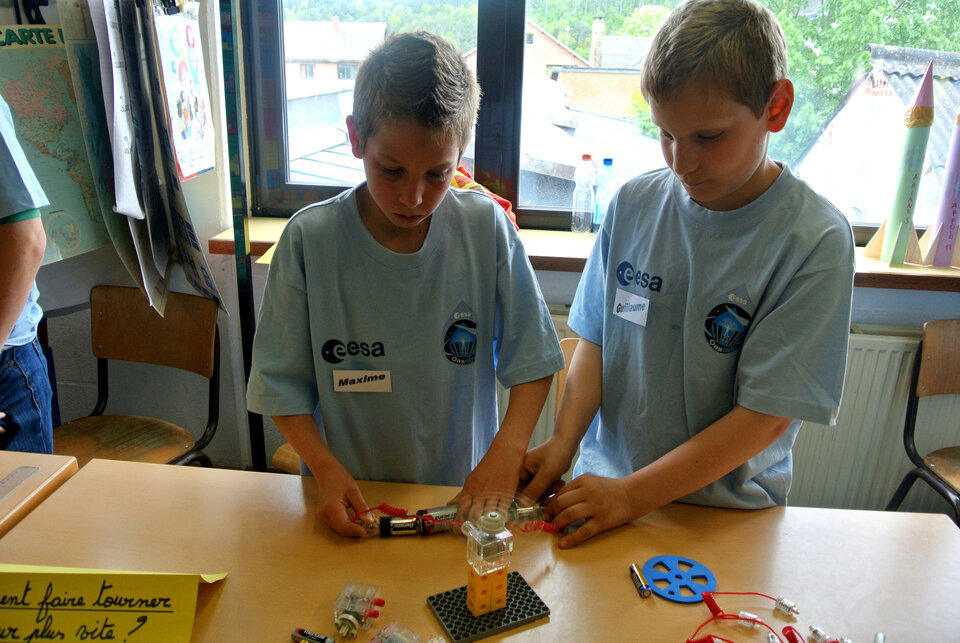
The first schools to receive the “Sciences at School” label presented a detailed, comprehensive dossier which explained the scientific methodologies developed by their teaching staff and students, as well as the projects they have implemented.
A commission then evaluated the schools’ dossiers and a visit of inspectors checked the work that was being done in the schools. Those which achieved the required objectives have now received the “Sciences at School” label. The number of schools receiving the title is expected to grow in future years.
ESEROs
In an effort to inform and inspire young people about science and technology, ESA has supported the creation of European Space Education Resource Offices (ESEROs) in eight of its Member States: Belgium, Norway, Sweden, Denmark, Finland, Netherlands, Ireland and UK.
Additional backing is provided by national governments and/or science-related organisations. In Belgium, the national ESERO is a collaboration with the Belgian Federal Science Policy Office (Belspo).
By encouraging educational activities specifically tailored for the national curricula and needs of each ESA Member State, the ESEROs play an important role in supporting science education. Space is used as a context to stimulate interest of youngsters for Science, Technology, Engineering and Mathematics (STEM).
By using space-related themes and familiarising students with space missions and the associated applications from space, they encourage the next generation to pursue careers in STEM, particularly in the space domain.
Frank de Winne addresses the participants of the "Sciences à l'École" award event via a recorded message on 15 May at Han-sur-Lesse.

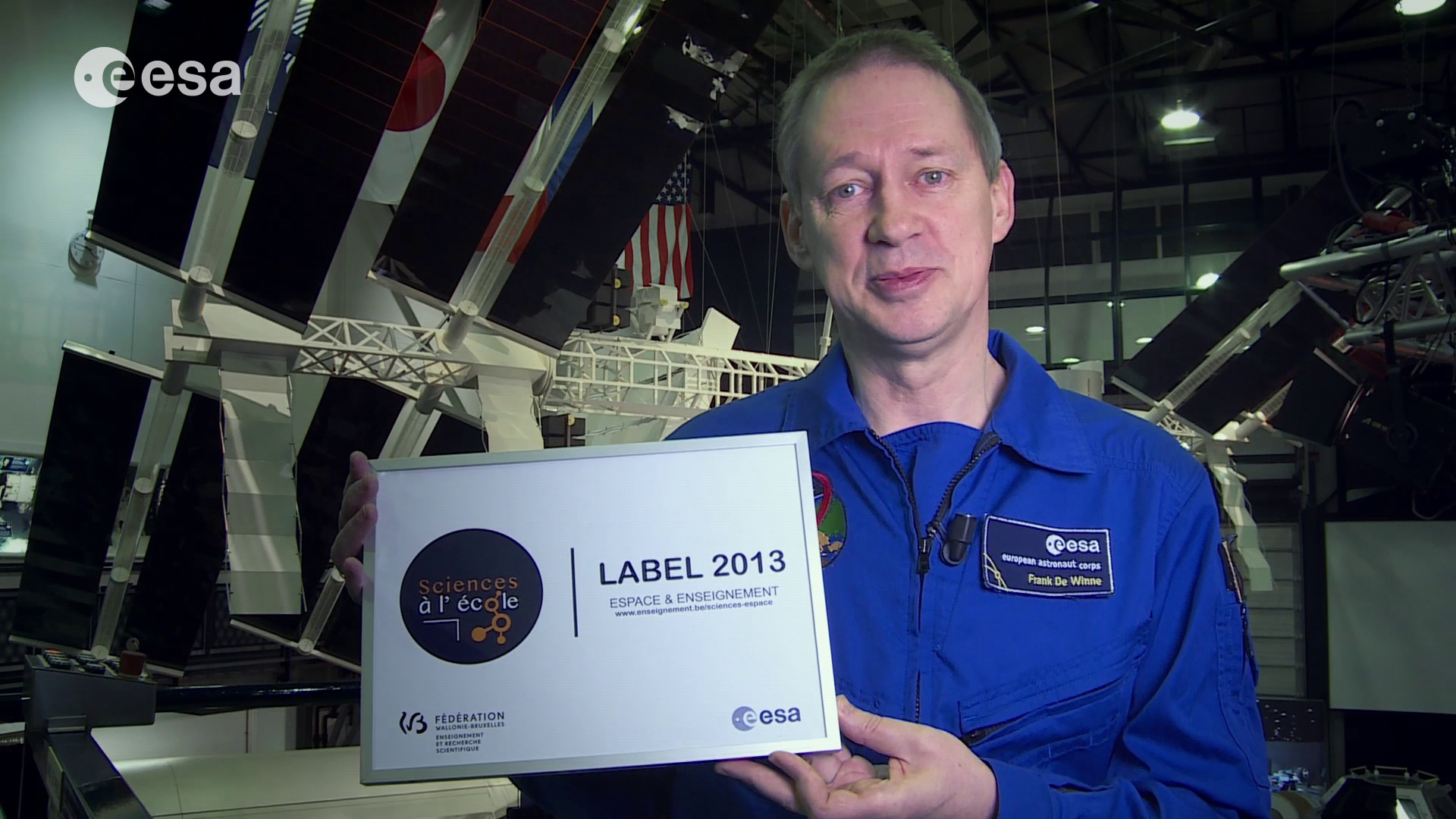
Access the video


